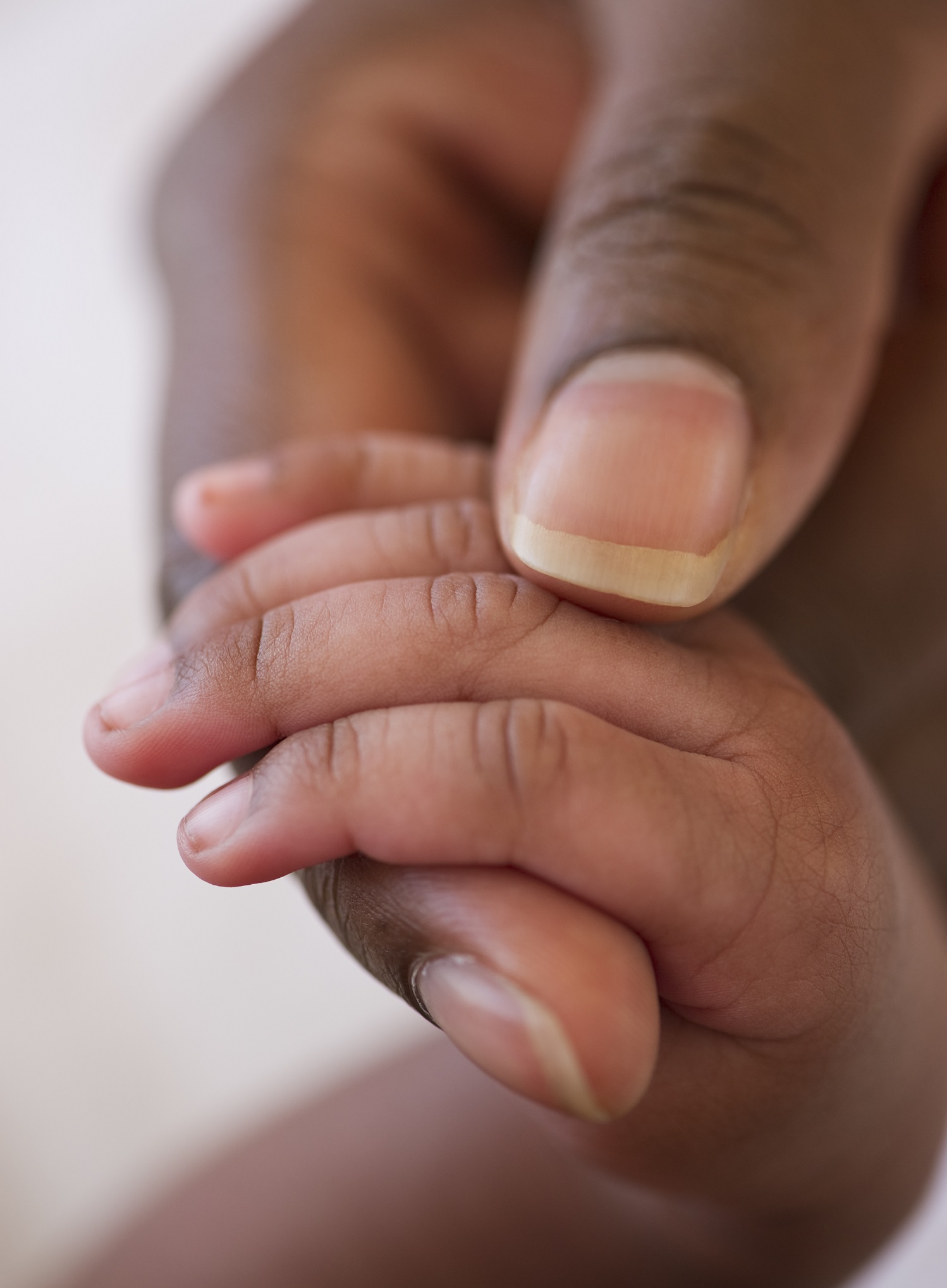Here parents will find answers to questions about sickle cell disease
My child has sickle cell disease. What does that mean? What can I do?
What is sickle cell disease?
Sickle cell disease is a disease of the red blood cells. Because of a change in the genetic material of the affected person, the red blood cells lose their round and supple shape and become hard and immobile cells called sickle cells.
Sickle cell disease is one of the most common hereditary diseases worldwide. In Germany, approximately 3000-5000 people are currently affected.
Why do the deformed red blood cells (sickle cells) cause symptoms?
The main task of the red blood cells is to supply the entire body with oxygen. For this reason, these cells are very flexible and pliable enough so that they pass through even the smallest blood vessels.
Because the sickle cells are hard and immobile, they have difficulty passing through small blood vessels and tend to get stuck. Clumps can form which impede the blood flow and the oxygen supply and lead to a lack of oxygen.
Different regions of the body can be affected by this lack of oxygen. Therefore, the symptoms in sickle cell patients can vary greatly.
Why is my child in pain?
The sickle cells tend to clump together and this can obstruct blood flow. As a result, the parts of the body that are supplied by the corresponding blood vessels do not receive enough oxygen. The lack of oxygen can lead to damage to tissues and organs. The body reacts to this damage by producing substances that cause pain.
One of the characteristics of sickle cell disease is that it causes phases of severe pain, known as pain crises. They can start suddenly and last for several hours or days.
Can I prevent my child from having a pain crisis?
You can reduce the frequency of pain crises by paying attention to certain things.
Try to avoid sudden changes in body temperature. A sudden cooling of the skin can also trigger a pain crisis. In winter your child should therefore always be well protected against the cold. Swimming in water or baths with a water temperature below 25°C is not recommended.
At high temperatures, you should make sure – even more than usual – that your child drinks a lot of water and does not exert himself or herself too much physically, because severe physical exhaustion can trigger a pain crisis.
Infections can also trigger pain crises. Your child is more susceptible to infections due to sickle cell disease and therefore needs special protection. It is best to talk to your doctor about this.
Can I see by just looking at my child if he or she is suffering?
As a parent, you probably know your child best. However, even for you, it will be difficult to always look at your child and see if he or she is in pain.
The best thing to do is to ask your child directly how he or she feels. It is important that your child knows that he or she can confide in you and talk to you openly about his or her pain and discomfort.
What can I do to make my child feel better?
You are a great help in treating your child’s complaints if you follow your doctor’s instructions and follow them exactly.
In addition to medication, a warm bath or warm compresses can help relieve pain. It is also helpful to make sure that your child drinks enough water, as water supports the transport of blood cells.
The influence of emotional support on the well-being of your child should not be ignored. The feeling of security and love can help your child to cope better with pain.
For which complaints should parents consult a doctor immediately?
You should take your child to a doctor immediately if it has a fever or severe pain.
Severe chest pain together with coughing and shortness of breath or sudden severe headaches are serious warning signs. In addition, if your child complains of severe abdominal pain, looks very pale and you can feel an enlarged spleen, you should act quickly and visit a hospital.
In general, you should take any abnormalities in your child’s behaviour and state of health seriously. If you are uncertain how to act in a specific case, you should always consult your doctor.
(The above list does not claim to be complete).
Why does my child have sickle cell disease?
Your child has sickle cell disease because you, the parents, have inherited a genetic disposition towards a changed blood pigment haemoglobin, for example HbS.
HbS would be the reason why the red blood cells deform into hard and inflexible cells.
But there are different forms of sickle cell disease. The doctor in charge will be able to explain the variant that applies to your family in detail.
Why do I not suffer from sickle cell disease myself, even though it is a hereditary disease?
Sickle cell disease is present when both parents have inherited the disposition towards the altered haemoglobin blood pigment. If you have only inherited the genetic make-up from one parent, you are a so-called carrier of the sickle cell genetic make-up. As a carrier, you do not develop symptoms of sickle cell disease because you produce both healthy haemoglobin and the sickle cell haemoglobin. However, you can pass on the sickle cell gene to your children.
Is my child contagious for other children?
Sickle cell disease is an inherited disease that is not contagious. The disease cannot be transmitted to others via saliva, blood, touch or any other means. The affected children are already born with a predisposition for this disease.
Everyday life
How does sickle cell disease affect my child’s life?
Sickle cell disease is a serious disease that will accompany your child for the rest of his or her life. Nevertheless, with the right treatment and your support, your child can lead a fulfilled life.
Your child will be able to go to school and do sports. Romping and playing with friends and siblings are not taboo, either.
However, your child will feel exhausted faster than healthy children because of the reduced oxygen supply. You should therefore make sure that he or she does not over-exert himself or herself.
Encourage your child to set his or her own limits and to keep to them.
Which persons should I inform about my child’s illness?
You should inform all persons who look after your child or all those persons in whose care they are. This will help the carer to be more understanding of your child’s needs and to be more sensitive to pains and other complaints.
In the event of an emergency, you should give these people your telephone number and that of the doctor looking after your child so that you can be contacted as soon as possible if your child is unwell.
How can I support my child?
Early and professional treatment by paediatricians and specialists is crucial for the quality of life of your child. Therefore, you should visit doctors regularly and follow their instructions exactly.
You can also help your child by learning about sickle cell disease. If you understand the disease you can help your child better cope with it. Similarly, you can better explain to your child why it may be necessary to take certain medications.
What is the right way to take medication?
Medication should always be dosed and given according to the instructions of the physician treating your child.
In the treatment of your child there will be medications that should be taken regularly and on a long-term basis for prevention and medications that may be necessary for the treatment of acute pain or other complaints.
Make sure that the preventive medication is taken regularly and according to the doctor’s instructions so that your child can be helped in the long term.
Remember to keep the medication safe for children and avoid mix-ups, so that no one else in the family can accidentally take it.




